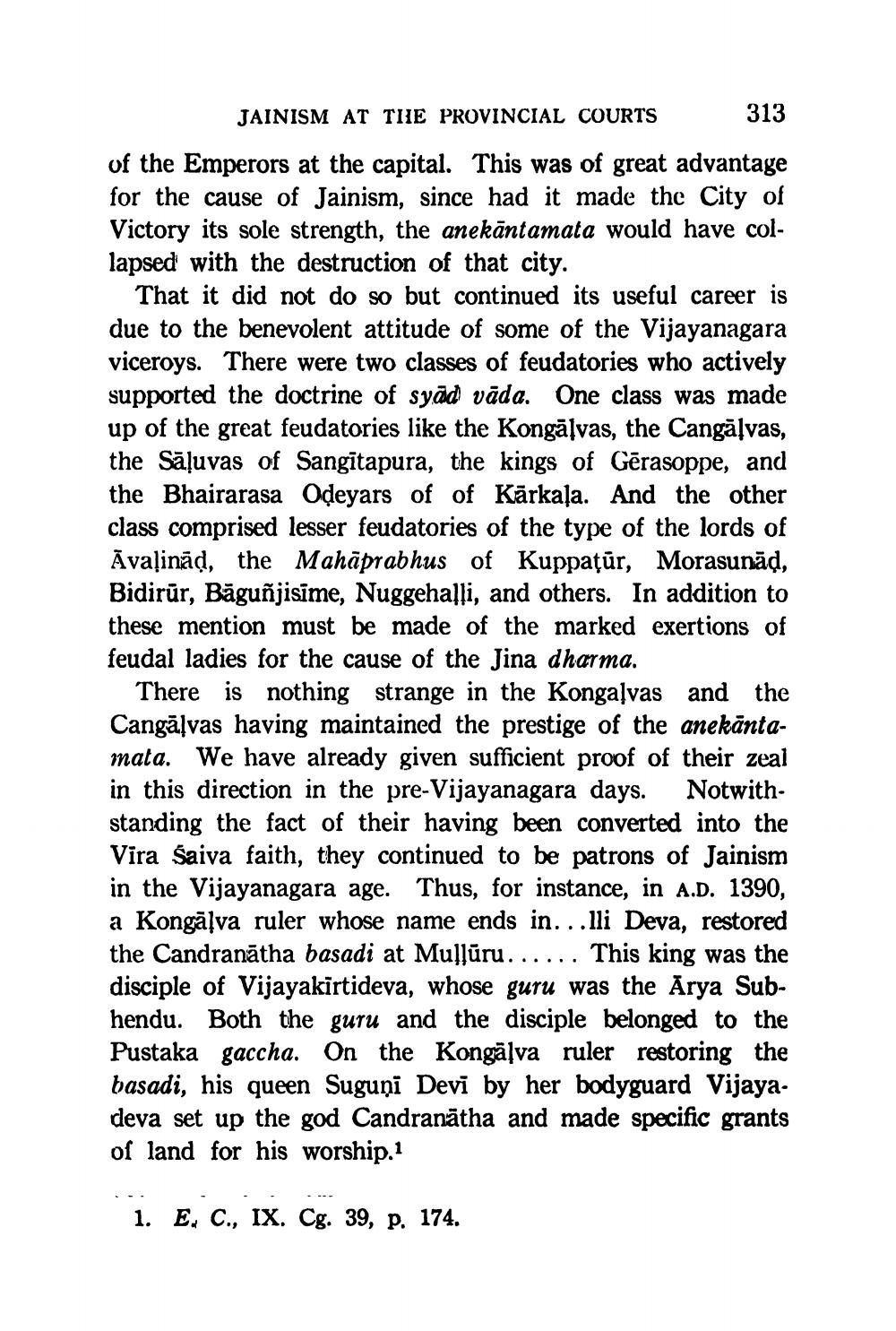________________
JAINISM AT THE PROVINCIAL COURTS
313
of the Emperors at the capital. This was of great advantage for the cause of Jainism, since had it made the City of Victory its sole strength, the anekāntamata would have collapsed with the destruction of that city.
That it did not do so but continued its useful career is due to the benevolent attitude of some of the Vijayanagara viceroys. There were two classes of feudatories who actively supported the doctrine of syad vāda. One class was made up of the great feudatories like the Kongālvas, the Cangāļvas, the Sāļuvas of Sangītapura, the kings of Gērasoppe, and the Bhairarasa Odeyars of of Kārkaļa. And the other class comprised lesser feudatories of the type of the lords of Āvaļinād, the Mahāprabhus of Kuppațūr, Morasunād, Bidirūr, Bäguñjisīme, Nuggehalli, and others. In addition to these mention must be made of the marked exertions of feudal ladies for the cause of the Jina dharma.
There is nothing strange in the Kongaļvas and the Cangāļvas having maintained the prestige of the anekāntamata. We have already given sufficient proof of their zeal in this direction in the pre-Vijayanagara days. Notwith. standing the fact of their having been converted into the Vira Saiva faith, they continued to be patrons of Jainism in the Vijayanagara age. Thus, for instance, in A.D. 1390, a Kongāļva ruler whose name ends in. ..lli Deva, restored the Candranātha basadi at Muļļūru. ..... This king was the disciple of Vijayakīrtideva, whose guru was the Arya Subhendu. Both the guru and the disciple belonged to the Pustaka gaccha. On the Kongāļva ruler restoring the basadi, his queen Suguņi Devi by her bodyguard Vijaya. deva set up the god Candranātha and made specific grants of land for his worship.1
F
1. E, C., IX. Cg. 39, p. 174.




